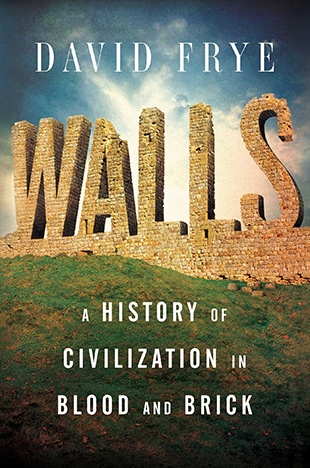"Almost anytime we draw back history's curtain and seek out the people most like us -- those such as Ovid or the Chinese poets, people who built cities, knew how to read, and generally carried out civilian labor -- invariably we find them enclosed behind walls of their own making. Civilization and walls seem to have gone hand in hand. Beyond the walls, we find little with which we can identify -- warriors mostly, of the sort we might hire to patrol the walls. The outsiders are mostly anonymous, except when they become notorious.
"The birth of walls set human societies on divergent paths, one leading to self-indulgent poetry, the other to taciturn militarism. But the first path also pointed to much more -- science, mathematics, theater, art -- while the other brought its followers only to a dead end, where a man was nothing except a warrior and all labor devolved upon the women.
"This book isn't intended to be a history of walls. It is, as the subtitle indicates, a history of civilization -- not in the comprehensive sense, but with the limited goal of exploring the unrecognized and often surprising influence of walls. I refer specifically to defensive walls. No invention in human history played a greater role in creating and shaping civilization. Without walls, there could never have been an Ovid, and the same can be said for Chinese scholars, Babylonian mathematicians, or Greek philosophers. Moreover, the impact of walls wasn't limited to the early phases of civilization. Wall building persisted for most of history, climaxing spectacularly during a thousand-year-period, when three large empires erected barriers that made the geopolitical divisions of the Old World all but permanent. The collapse of those walls influenced world history almost as profoundly as their creation, by leading to the eclipse of one region, the stagnation of another, and the rise of a third. When the great border walls were gone, leaving only faint traces on the landscape they still left indelible lines on our map -- lines that have even today not yet been obscured by modern wars or the jockeying of nations for resources. Today, a newer set of walls, rising up on four continents, has the potential to remake the world yet again."
